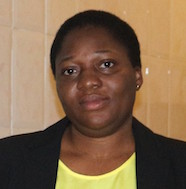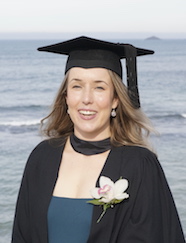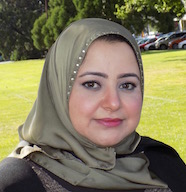Wednesday 11 August 2021 10:35am
The Edgar Diabetes and Obesity Research Centre (EDOR) conducts a large number of scientific projects and research trials. The powerhouse behind these research endeavours are often our postgraduate students. Let's meet some of the EDOR PhD students and hear about their research.
 Taiwo Adebowale
Taiwo Adebowale
Taiwo is a medical doctor working on the POI (Prevention of Overweight in Infancy) study, a randomised controlled trial involving more than 800 Dunedin families. The POI study is assessing whether extra education and support during infancy reduces the number of children showing excessive weight gain. POI participants are now 11 years old and Taiwo is determining the long term effectiveness of the POI early sleep intervention on pre-adolescent mental and physical wellbeing.
 Brad Brosnan
Brad Brosnan
Brad, who is also a registered dietitian, is running the Bedtime Electronic Devices (BED) study. This study aims to understand how the night-time use of electronic media (screens) affects sleep, dietary intake and physical activity in children. Brad is using a number of technologies to accurately and objectively measure screen use throughout the night, including the times when parents may not be aware that children are using devices!
 Alice Cox
Alice Cox
Alice is investigating the nutrition-related health of 7-9 month old infants, as part of the First Foods study, an observational cross-sectional study that follows 625 babies from the Auckland, Wellington and Dunedin area. A key focus is identifying complementary feeding practices that help infants to preserve their innate ability to self-regulate their appetite, as this may be important in reducing the risk of obesity.
Mona Elbalshy Dr Mona Elbalshy is a trained endocrinologist with a passion to provide healthier, more equitable and cost-effective diabetes care to children and their families. Mona is conducting the MiaoMiao study, a randomised controlled crossover trial in 55 young children (aged 2-13 years) and their families, to investigate a more affordable and accessible continuous glucose monitoring device for children with type 1 diabetes.
Dr Mona Elbalshy is a trained endocrinologist with a passion to provide healthier, more equitable and cost-effective diabetes care to children and their families. Mona is conducting the MiaoMiao study, a randomised controlled crossover trial in 55 young children (aged 2-13 years) and their families, to investigate a more affordable and accessible continuous glucose monitoring device for children with type 1 diabetes.
Lou Fangupo As a registered dietitian and mother, Lou knows that getting enough sleep can be challenging in today's world. Moemoeā: sleep, health, communication and wellbeing is exploring Māori and Pacific expertise on nurture and connection before sleep, and weaving this with western evidence on effective ways of improving sleep in children. Lou's research will help create a 'toolkit' that is tailored for Māori and Pacific families, incorporating relevant cultural values and traditions.
As a registered dietitian and mother, Lou knows that getting enough sleep can be challenging in today's world. Moemoeā: sleep, health, communication and wellbeing is exploring Māori and Pacific expertise on nurture and connection before sleep, and weaving this with western evidence on effective ways of improving sleep in children. Lou's research will help create a 'toolkit' that is tailored for Māori and Pacific families, incorporating relevant cultural values and traditions.
Silke Morrison Silke, a registered dietitian, is doing her PhD as part of the DREAM study, a randomized crossover trial looking at how mild sleep restriction influences eating behaviour and activity patterns in 8-12 year old children. Silke is investigating whether mild sleep deprivation in children influences eating in the absence of hunger. This includes assessing daily energy intake, the quality of dietary food choices, and how time gets re-allocated to physical activity or sedentary behaviours when children are tired.
Silke, a registered dietitian, is doing her PhD as part of the DREAM study, a randomized crossover trial looking at how mild sleep restriction influences eating behaviour and activity patterns in 8-12 year old children. Silke is investigating whether mild sleep deprivation in children influences eating in the absence of hunger. This includes assessing daily energy intake, the quality of dietary food choices, and how time gets re-allocated to physical activity or sedentary behaviours when children are tired.
Rosie Jackson Rosie, also a dietitian, is determining how tiredness might influence eating behavior (such as emotional eating) as part of the DREAM study. Rosie is using wearable cameras to observe children's screen time and behaviour when they get less (or more) sleep than usual. It is hoped that this research will give the evidence needed to support sleep as a potential strategy for reducing childhood obesity in Aotearoa New Zealand.
Rosie, also a dietitian, is determining how tiredness might influence eating behavior (such as emotional eating) as part of the DREAM study. Rosie is using wearable cameras to observe children's screen time and behaviour when they get less (or more) sleep than usual. It is hoped that this research will give the evidence needed to support sleep as a potential strategy for reducing childhood obesity in Aotearoa New Zealand.
Margaretha Situmorang Margaretha's architectural engineering background, and her previous work in urban road safety and sustainable human settlement projects, attracted her to the Built Environment and Active Transport to School (BEATS) Study. Margaretha is investigating adolescent snacking behaviour and its relationship with the mode of transport to school, as well as the food environment around the school.
Margaretha's architectural engineering background, and her previous work in urban road safety and sustainable human settlement projects, attracted her to the Built Environment and Active Transport to School (BEATS) Study. Margaretha is investigating adolescent snacking behaviour and its relationship with the mode of transport to school, as well as the food environment around the school.
